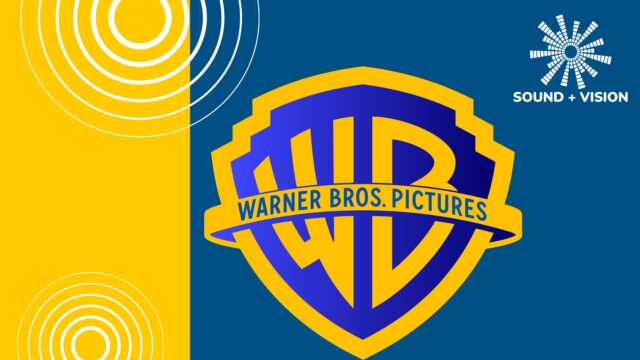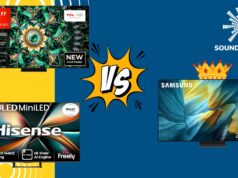After ‘umm’ and ‘ahhing’ for a year, it does look as if the ‘For Sale’ sign has been hung on the Warner Bros’ water tower, and make no mistake, this is not a good thing for the film industry.
Since the turn of the millennium, Warner Bros. has been subject to a number of takeover bids, and it has not had the best record with mergers and acquisitions (M&A). You could describe it as a bit terrible.
It was Time Warner back in the 1990s when it merged with Time Inc., which at one point owned Trusted Reviews before the publishing side was spun off as TI Media in the 2010s.
Then there was the AOL Time Warner merger, which, considering how well it went, you could swap the ‘A’ for the ‘L’ and describe the experience as LOL Time Warner after the Internet Boom went bust.
The company was renamed WarnerMedia after it was bought by US telecoms giant AT&T (another terrible acquisition) before it merged with Discovery, Inc. to become Warner Bros. Discovery. That lasted for three years before it was decided to split the two companies back into separate entities.
Warner Bros. is now the subject of lots of interest, and everyone thinks Paramount will end up the victor. But to quote Alien vs Predator, whoever ends up buying Warner Bros. “we lose”. Here are a few reasons why.
Too much power
Warner Bros is a huge entertainment company in its own right with, quite possibly, the most storied history in Hollywood. It has made stars, it’s made directors, it’s made franchises; it’s made billions for 100 years.
And its success means it keeps finding itself within the crosshairs of acquisitions, constantly having to bow the knee to usurpers when a company of its reputation should be (in my view) eating others up.
The Warner Bros. library is one of the most significant in Hollywood, possibly more so than Disney. It’s a mix of RKO Pictures (though Turner Entertainment), some MGM titles and its own library that consists of HBO, Cartoon Network, Adult Swim, TNT, TBS and CNN. That’s a treasure trove of programming.

But as we saw with the Disney/20th Century Fox acquisition, too much content in the hands of one player doesn’t make the industry bigger but smaller. Hollywood’s near-constant mood of consolidation has only made it look inwards rather than outwards.
The land grab for streaming has caused self-inflicted blows, reducing revenue from cinemas because viewers are happy to wait rather than feel the need to see a film on the big screen.
Paramount hasn’t been a hit factory in the same way as Warner, so you can see the appeal of buying Warner and having a hold over even just its D.C. films.
But that would make Paramount far too big on the media landscape, and it’d have too much control. And that will undoubtedly affect the consumer with higher prices, and potentially fewer TV series and films being made, which will affect filmmakers, too. Competition is vital for any industry to move forward. Reducing the competition does not always make for better quality.
Physical media has seen better days, for sure, and in the streaming age, there’s the nagging feeling that companies are betting the farm on the eventual transition to streaming, even if that’s obliterating revenue in the short-term.
Hence streaming services going up, up, and up in price – the current crop of Hollywood executives do not believe you’re paying the right amount for the value you’re getting – think closer to £30 / $30 a month and you’re getting closer to ballpark.
Warners’ library means is the envy of most, criss-crossing from families to more mature fare. Its MPI (Motion Picture Imaging) facility is one of the foremost in restoring and remastering films, and if memory serves, has one of the few 8K scanners. If you want 8K films, MPI has been the leader in scanning films at that resolution.


Its investment in filmmakers over the decades has ensured its library continues to have value. This year will see the rest of Stanley Kubrick’s films reach 4K Blu-ray, with more of Clint Eastwood’s films hitting the format, and Warner’s distribution deal with MGM has brought the Sean Connery James Bond films to 4K Blu-ray (and the expectation is that more will follow).
Warner Bros. support for physical media has been a bit up and down (its choices are strange), but it has titles people want to see. I can only imagine that a buyout would put the emphasis on streaming rather than physical media.
Who wouldn’t want to have the entire HBO library (Game of Thrones, The Wire, The White Lotus, The Last of Us etc) and Friends on their streaming service.
N is for Not Netflix
Let’s make this one quick. Unlike Warner, Netflix is not a ‘studio’ with a knack for creating stars, buzz around directors or beloved franchises. It’s a studio sorely lacking in history and heritage and the quality of its films has been consistently below-par unless it throws money at a director considered to be an auteur.
So you can see why they’d be interested in the Warner Bros’ library but it might be the worst option of all of them, and I don’t think I’m being alarmist. It won’t care for physical media. It won’t care much if at all for cinema releases (Did you know Guillermo del Toro’s Frankenstein is in cinemas this week, because I had no clue).


It’s not been very good at supporting older titles, lost in the maze of algorithms and a library that’s deeply uninterested in anything before the 90s. It makes its choices based on data, but because of that, it’s rarely interested in creating something new, but more or less reimagining popular works for those with short attention spans. Would they even consider making a show like The Wire?
Would you really want Netflix to be the studio that owned Citizen Kane, The Dark Knight or A Clockwork Orange? Christopher Nolan would be aggrieved if his films fell totally under the Netflix banner.
Maybe Apple (maybe)
Apple might be a good home for Warner Bros. It’s already got an underrated streaming service in Apple TV that apes the HBO model for quality. It at least showed with F1: The Movie, that it’s willing to indulge in cinema releases (ironically, it was Warner who distributed Apple’s most successful film).
Like Netflix, it wants history, heritage and the prestige that the Warner Bros. library provides, and it has deep enough pockets to produce almost anything and a driven focus on quality.


It would seem to be a good home. Whether it’d be interested in physical media is another question but Warners extracted a 4K Blu-ray for F1, so maybe. There’s a partnership enhanced by the fact that Ted Lasso is a Warner’s produced title as well.
The issue here, similar to Disney, is that Apple can be milquetoast in its tastes – it’s not that interested in mature content. It will not want to test the waters/rock the boat in that sense. It’s not a company that likes controversy or negativity, and it has strikes against it in terms of censorship too.
There are positives, but also negatives.
Warner Bros is strong enough to exist on its own
Warner Bros.’ track record of acquisitions should be enough for people to stay well enough alone. It always seems to end up in tears and not in the feel-good weepie comedy or rom-com way.
This year has been one of the studio’s most successful – historic, even – with seven consecutive films launching above $40 million in the US, and the excellent One Battle After Another set to be one of the main players in the 2026 Oscar conversation. No other studio seems interested in financing Ryan Coogler’s Sinners aside from Warner Bros.


But that success has served to make it a very attractive asset to be sold. The sale is a grab for money and power in the media landscape. A studio that has Superman, Batman, The Matrix and Harry Potter franchises under its wing shouldn’t be under threat – it should be the predator rather than the prey.
Whatever happens, Hollywood needs to stop thinking that consolidation is the answer to its current woes. This isn’t thinking big despite the big prices involved. It won’t give filmmakers more opportunities, it won’t result in better films either. It’ll make Hollywood smaller. It won’t be so much of a dream factory but more of ‘meh’ factory. That has to be avoided.









